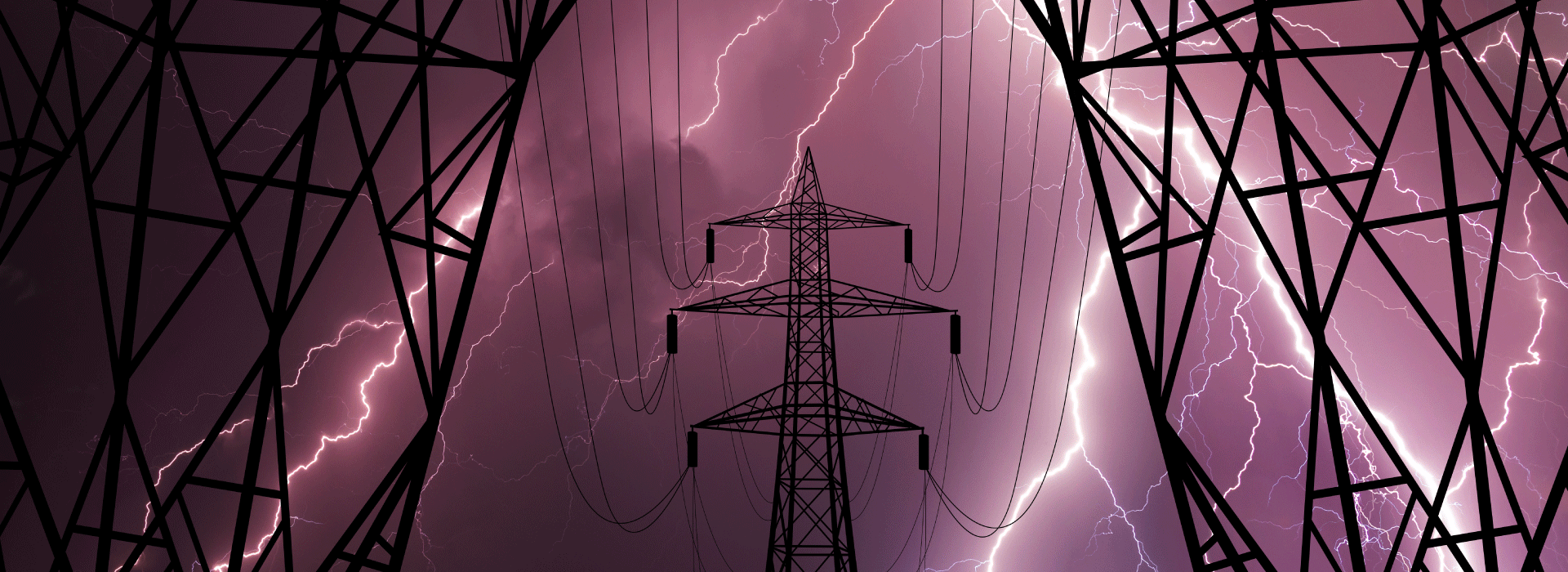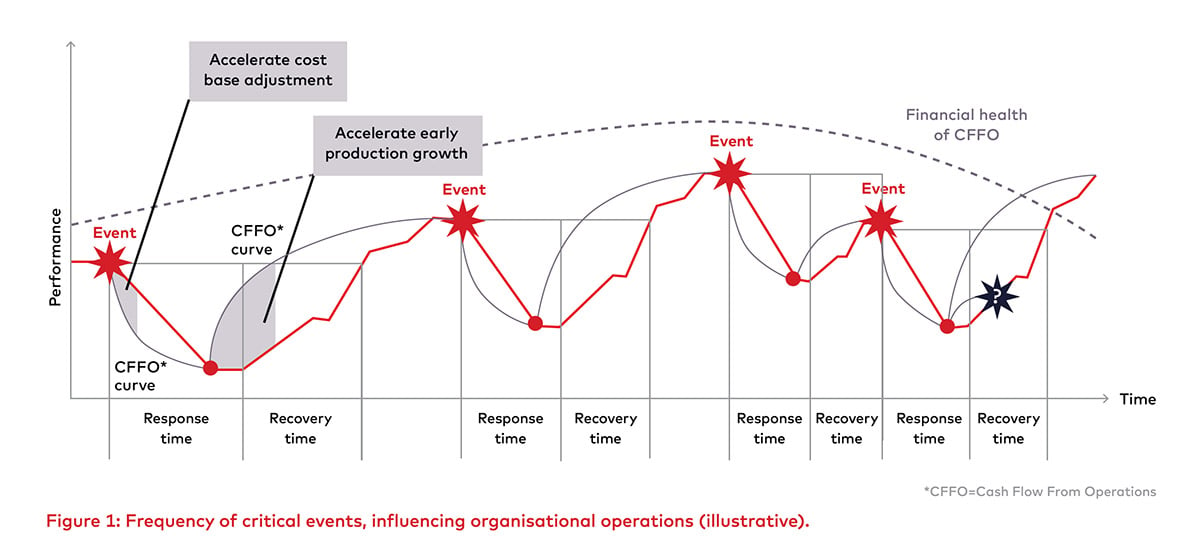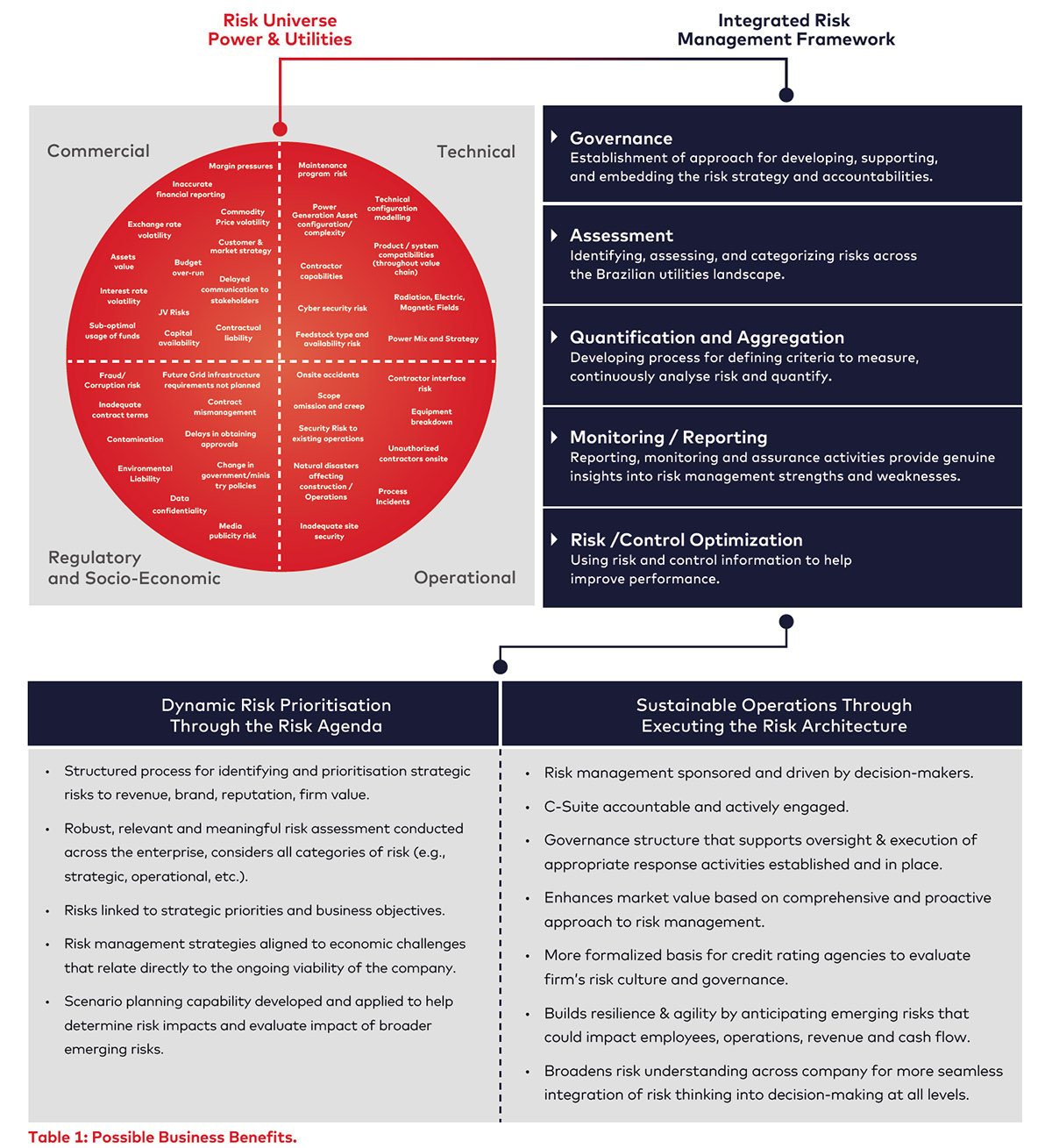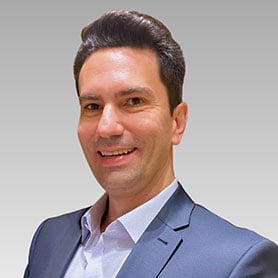Brazilian Grid Resilience
Integrated risk-based approach: A cornerstone of organisational resilience
An integrated risk-based approach emerges not merely as a strategy, but as an imperative for CEOs committed to steering their organizations towards resilience, innovation and long-term prosperity.
In the face of the evolving global scenario, the Brazilian electric grid is confronting an unprecedented array of challenges. These include extreme climate events which have become more frequent and severe in recent years, as well as technological shifts, regulatory changes and a society that is increasingly engaged and demanding in terms of sustainability and reliability of energy supply.
Another element adding to the complexity is the rapid expansion of distributed generation sources, such as solar panels, battery storage, and hybrid systems. This trend further complicates the landscape by reshaping energy consumption, production and commercial dynamics. Against this backdrop, the need for business resilience within Brazil's electric grid ecosystem, involving government agencies, regulatory authorities, society, industry associations and the private sector, has never been more pressing.
To navigate these complexities, placing robust and integrated risk management strategies at the forefront of strategic and operational planning is essential. A thorough risk assessment tailored to Brazil's unique environment must kickstart this process, identifying vulnerabilities not only to recent extreme weather events but also to technological disruptions, regulatory shifts, and societal pressures. While leveraging predictive analytics can certainly assist in forecasting potential risks and their impacts, enabling preemptive strategies and robust response mechanisms, it alone is not sufficient.

We propose two lines of action to address these challenges:
1. Enhancing Resilience of Utilities through Integrated Risk Management
From the perspective of utility management, alongside ecosystem-wide efforts, there is a critical need to reassess and refine overall risk management processes, governance, culture, leadership, and the integration of strategy with day-to-day operations at the front line. Securing the utility's reputation in the event that an extreme threat materializes involves elevating the effectiveness of overall risk management.
And herein lies the challenge: to understand what constitutes a critical risk and then extracting it from the 'noise' of all other risks, while maintaining a comprehensive view of governance, operations, organisational culture, engineering and engaging teams in pursuit of a joint and feasible solution.
Following the implementation of the integrated risk-based process, the next step involves delving deeper into the analysis of each critical risk, implementing effective barriers, establishing mitigation plans and conducting simulations to include the development of robust internal and external communication strategies.
One of the key outcomes of this process is to enhance response and recovery times during one or several extreme events, especially given the current situation in Brazil. This serves to safeguard cash flow from operations (Figure 1).

By harnessing various tools, our operational expertise, experience in transformation and a strong sense of purpose, we can drive accelerated change and impact.
A risk-centric approach not only enhances the resilience of Brazil's electric grid, but also maximises the value generated from our risk management efforts. Below, we present a framework illustrating how we integrate risk management with the aim of enhancing the sustainability and resilience of our clients' operations.

2. Creating a National Grid Resilience Consortium (NGRC)
In response to these requirements, the creation of a National Grid Resilience Consortium (NGRC) dedicated to Brazil emerges as a strategic necessity. This coalition of key stakeholders would bring together government agencies, regulatory authorities, dispatch centers, energy utilities, technology providers, and civil society representatives in a concerted effort to collectively address the challenges confronting the national grid and to collectively develop solutions.
It would serve as the mediator of the Brazilian utility industry by examining the robustness of infrastructure’s current state, deploying corrective counter measures with vested parties and crucially acting as a catalyst to expedite emergency response to critically affected areas. The NGRC would act as a guardian of the ecosystem to minimise the current and potential impact on societies and industries that have been left vulnerable and deprived of power. We would propose the responsibilities of the NGRC to be as follows:
- The NGRC would act as the custodian of a central emergency fund from which operating companies in affected areas could draw up to accelerate complex and multi-party mitigating interventions.
- The NGRC would be an atribrator on incident criticality and resource allocation-based Grid National Risk Register and priority settings.
- All private and public companies that participate in Power and Distribution utilities in Brazil would provide representation and participation, including the associations.
Overall, the NGRC would focus on bridging the gap between the private and government sectors, while utilities participate by connecting the strategy to the front line in a collaborative manner.
By leveraging shared knowledge and resources, and coordinating actions, the NGRC endeavors to devise and execute comprehensive strategies to tackle the complex challenges at hand. This collaborative approach, rooted in innovation and proactive risk management, positions the National Grid Resilience Consortium as a pivotal entity in ensuring the adaptability and resilience of the Brazilian electric grid in light of present and future challenges and vulnerabilities. While some solutions will lie within individual company operations, others will involve government oversight and regulatory measures. We also must consider the end user - residents and all grid users. The goal is to enhance grid resilience, making it more robust against disruptions, including unforeseen events such as COVID-19 and extreme weather conditions.
Vulnerabilities faced by the Brazilian utility industry
Just as natural ecosystems can reach their limits and undergo fundamental transformations, similar systemic shifts are occurring across other spheres: geostrategic, demographic, and technological. (Global Risks Report 2024).
The utilities industry is facing a number of challenges and vulnerabilities that can be addressed through some of the solutions below.
Regulation Changes
As Brazil's regulatory landscape undergoes transformations, it becomes imperative for organisations to adopt a proactive compliance strategy that anticipates and adapts to impending changes. This involves actively participating in the legislative process, not only to ensure adherence to emerging regulations, but also to influence their formulation. However, the pace of progress and the diverse array of biases at play raise questions about whether the regulatory framework is effectively contributing to the enhancement of grid resilience.
Community and Stakeholder Engagement
Engagement with the community and stakeholders is fundamental. Building strong relationships with all segments of society, including government bodies, regulatory agencies, and the wider public, facilitates a mutual understanding of societal expectations and enhances community support during crises.
Technological Innovation
At the heart of enhancing the resilience of Brazil's electric grid lies the deployment of advanced technologies, including artificial intelligence and machine learning. These technologies are vital for predictive maintenance, grid optimisation, and improving response capabilities to disruptions.
Extreme Weather Events
Given the recent extreme weather events that have affected Brazil, investing in resilient infrastructure capable of withstanding such challenges is paramount. This involves not only upgrading critical components of the grid, but also implementing microgrid solutions and enhancing system redundancy to ensure continuity in the face of natural disasters. However, this task cannot be undertaken solely by utilities; it requires collaboration with critical stakeholders and government endorsement through appropriate laws and regulations.
Integration of Generation Sources and Services
Ensuring the smooth integration of distributed generation sources and ancillary services, with a focus on flexibility, into the national grid is essential for upholding stability and reliability as the country transitions towards a more diverse energy mix.
Security
Enhancements in both cybersecurity and physical security are equally critical, especially considering the digital and interconnected nature of modern grids. Safeguarding against cyber threats and physical risks is essential to ensure the security and reliability of the energy supply.
Organisational Culture
Fostering a sector culture that emphasizes team interdependencies and effectiveness, supported by continuous learning and innovation, can greatly enhance resilience within organisations. By drawing lessons from past incidents and embracing best practices, companies in Brazil's electric grid ecosystem can enhance their preparedness and response strategies.
Quality Data Management System
A robust data management system is critical for identifying vulnerabilities in acquiring, curating, analysing, and generating useful intelligence to support the foundational upkeep of infrastructure. This includes communication systems, which are also vulnerable to disruptive events. Implementing Business Continuity Plans without reliable data is nearly impossible.
Generational Shift
As Baby Boomers retire, the electrical sector may face a temporary shortage of specialised knowledge and operational expertise. Additionally, differences in work styles and expectations across generations could lead to cultural friction, potentially resulting in miscommunication and decreased team cohesion. A critical concern is workforce retention; the tendency of younger generations to change jobs more frequently raises the risk of higher turnover rates, which could threaten the sector's continuity and operational stability.
Asset Modernisation
Investing in modernisation efforts and proactive maintenance is crucial for Brazilian power utilities to address the risks posed by legacy assets. Upgrading infrastructure can improve reliability, efficiency, and safety, while implementing smart grid technologies can enable better management of the power grid and integration of renewable energy sources.
Risks drive demand for mitigation efforts, which in turn create opportunities for organisations to meet this demand.
| Our approach emphasises a strategic and integrated assessment based on risk and resilience, beginning with a comprehensive diagnostic of current processes. This is followed by a reevaluation of the utility's risk profile to ensure a holistic mapping of critical risks covering operational, social, environmental, and governance aspects. The subsequent step involves prioritising risks through the expertise of multiple leaders and then conducting a deep dive into critical risk scenarios. This process aims to identify and implement multidimensional risk controls that can significantly elevate mitigation levels, thus reinforcing the resilience of operations against the myriad of challenges it faces. |
Author

